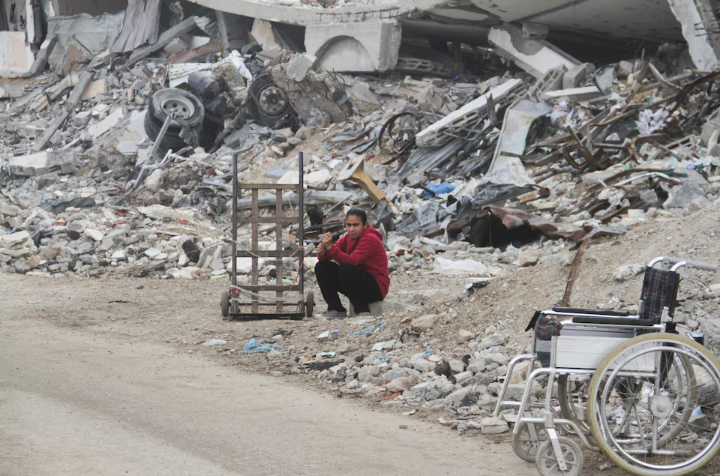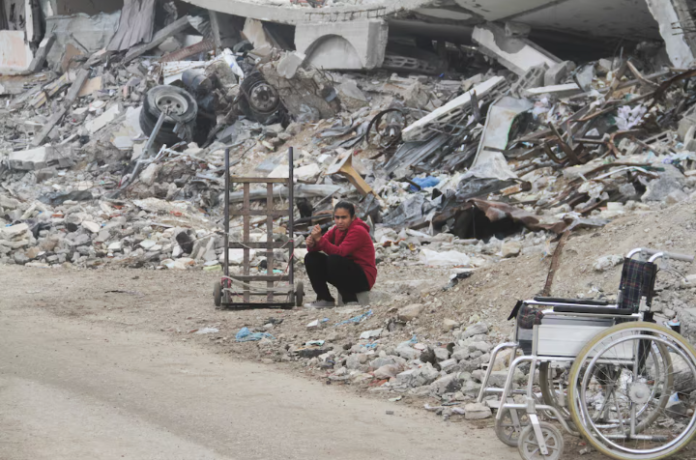Israel has postponed a crucial cabinet meeting to ratify a ceasefire agreement with Hamas, citing last-minute demands from the militant group. Meanwhile, Palestinian authorities report that Israeli airstrikes overnight have killed 77 people in Gaza, adding urgency to the stalled truce negotiations.
Ceasefire Deal Faces Unexpected Delay
The ceasefire agreement, brokered by Qatar, Egypt, and the United States, was expected to take effect on Sunday, aiming to end the 15-month-long conflict that has devastated Gaza and heightened tensions across the Middle East.
While Hamas insists it remains committed to the deal, Israeli Prime Minister Benjamin Netanyahu has delayed the security cabinet meeting, accusing Hamas of backtracking on its commitments. “The Israeli cabinet will not convene until the mediators notify Israel that Hamas has accepted all elements of the agreement,” a statement from Netanyahu’s office read.
Key Issues Holding Up the Agreement
According to U.S. officials, the primary dispute revolves around the list of Palestinian prisoners Hamas wants released in exchange for Israeli hostages. President Joe Biden’s envoy, Brett McGurk, and President-elect Donald Trump’s envoy, Steve Witkoff, are in Doha, working alongside Egyptian and Qatari mediators to resolve the remaining disagreements.
If approved, the ceasefire would last six weeks and include:
A gradual withdrawal of Israeli forces from Gaza.
The release of Israeli hostages in exchange for Palestinian prisoners.
The delivery of 600 truckloads of humanitarian aid daily, including fuel shipments.
Rows of aid trucks have already lined up in Egypt, awaiting the border’s reopening.
Political Turmoil in Israel Over the Ceasefire
While a majority of Netanyahu’s ministers are expected to support the deal, hardliners in his government are fiercely opposed. Finance Minister Bezalel Smotrich’s Religious Zionism Party has demanded a return to full-scale military operations after the first phase of the ceasefire. Meanwhile, far-right National Security Minister Itamar Ben-Gvir has threatened to quit the government if the truce is approved.

Protests have erupted in Jerusalem, with Israelis marching through the streets carrying mock coffins in opposition to the deal. Some demonstrators blocked roads and clashed with police, reflecting deep divisions over the ceasefire’s potential consequences.
Palestinians Call for Immediate Implementation
For many in Gaza, the ceasefire cannot come soon enough. “We lose homes every hour,” said Gazan resident Mahmoud Abu Wardeh. “We demand that this joy not be taken away—don’t waste it by delaying the truce until Sunday.”
Despite growing international optimism, Israeli airstrikes have continued. Gaza’s health ministry reports that at least 81 people have been killed in the past 24 hours, with 188 others injured. The Israeli military is reportedly reviewing these claims.
A Fragile Peace in the Making?
The ceasefire deal represents a crucial opportunity to halt a war that has killed over 46,000 people and displaced millions. If successfully implemented, it could ease tensions throughout the region, including with Hezbollah and Iran-backed groups. However, the future of Gaza remains uncertain—Hamas has been weakened, but with no alternative leadership in place, it continues to wield influence.
The first phase of the ceasefire includes the release of 33 Israeli hostages—primarily women, children, and elderly men—out of the remaining 98 captives in Gaza. As world leaders express support for the deal, all eyes are now on Israel’s cabinet to determine whether peace will finally take hold.



